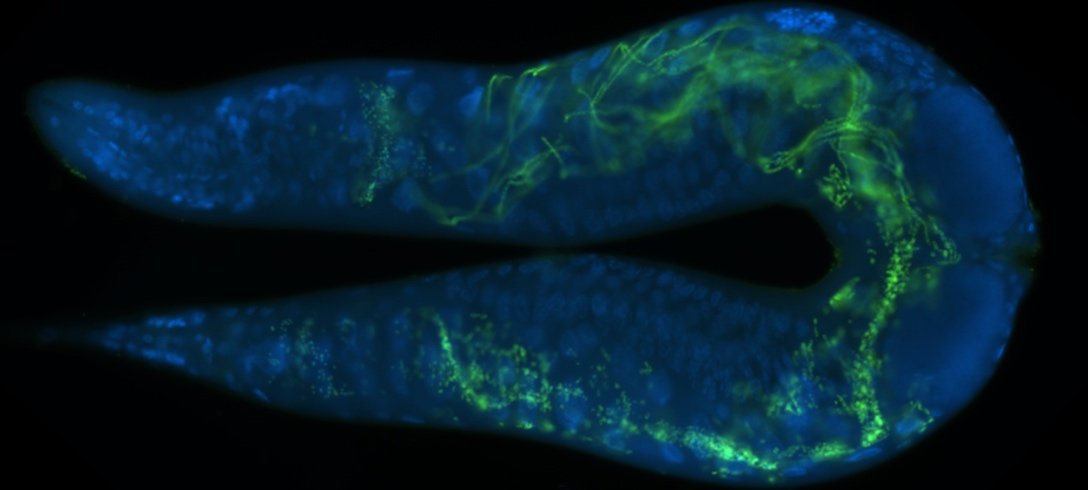
About Us
There is an enormous diversity of microbes in the world and many of them shape the evolution and ecology of animals, including humans. We aim to understand the beneficial and pathogenic interactions that are occurring between natural microbiota and their hosts, and uncover the role that coevolution plays in shaping these dynamics. As our model, we use small transparent nematodes (including the genetic model Caenorhabditis elegans) which allow us to easily visualize microbial colonization and infection in live animals, and easily manipulate genes to understand the role that host genetics plays in microbial interactions. Our research starts with ecological sampling to find novel microbes in wild nematodes. Then, we study them in the lab using biological and computational techniques in genetics, comparative genomics, biochemistry, microbiology, and microscopy. In the end, we hope to have a better understanding of the interactions and coevolution occurring between hosts and microbes, with the goal of discovering new ways to manipulate these interactions for the potential treatment of human and animal diseases.
A bacterial filament of Bordetella atropi (red) seen disrupting host actin (green) at the lateral intestinal membrane as the filament spreads into neighboring host cells. This gif is a composite of static images moving down the z-plane. Image credit, Tuan Tran.